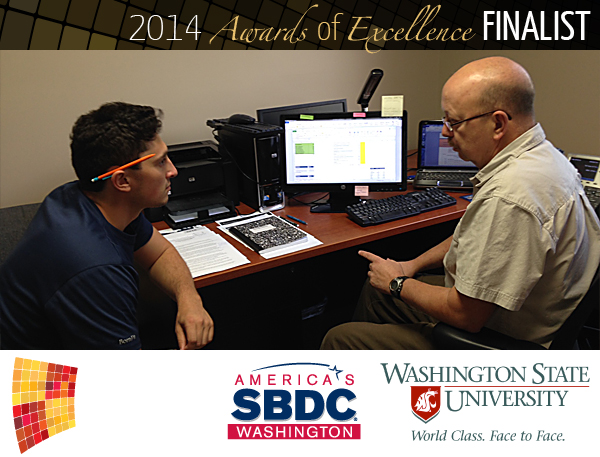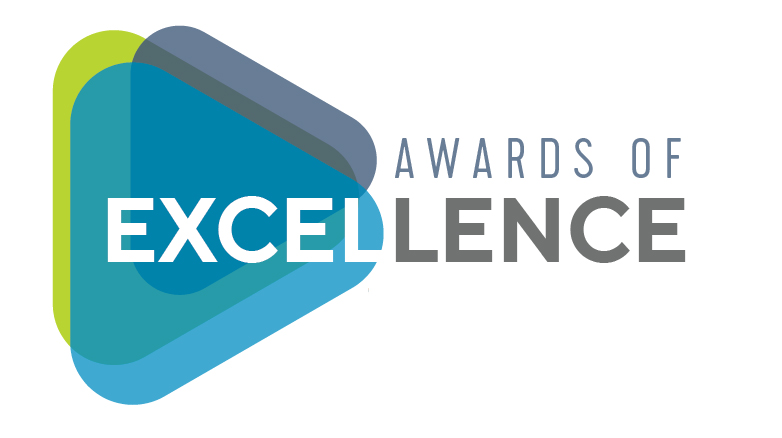Network

| Award Category: | Talent Development |
| Project Site: | Washington SBDC |
| Submitted By: | Washington State University |
| Contact: | Terry Chambers , 509.358.7894 |
Case Study
Abstract
The Washington State University (WSU) SBDC research intern program was established in 2011 with eight WSU interns in response to a State grant to grow new exports. It quickly became clear that most of the students had sufficient research capability but lacked specific experience using proprietary databases and other more sophisticated research resources for in-depth and targeted market intelligence research. In addition, the students lacked experience in writing research reports to meet the needs of small to medium business owners. To resolve these issues the program has become very sophisticated over the last three years in the quality of the research methodology and information transfer training of the interns and the resources being used. The most significant change was the in-house development of a comprehensive intern training and mentoring program that advanced the student intern’s knowledge and capabilities by orders of magnitude. For the students, the result is increased quality and quantity of research, providing them a substantial increase in their marketability in the job market. Their first employers state that the knowledge, professionalism and communication skills the interns gain through working in our program for a year or more was a deciding factor in hiring. For the businesses assisted through the program, they gain the needed knowledge to enter the export market confidently and successfully. Ultimately, long-term relationships are forged through this program. Due to the success of the program, it has expanded to 10-12 active interns and from several universities across the state.
Problem/Background
The WSBDC was tasked by the Governor of Washington State in 2011, under the National Export Initiative, with growing exports in the state. The export program required a total ground up development as the resources and processes did not exist anywhere in the network. The goal of assisting primarily New- to-Export companies complicated the issue even further as few if any organizations across the country were focused on this segment of the market. After extensive research to find best practices and resources it became clear that these companies were going to need both in-depth and long term expert guidance from experienced international trade specialists, substantial assistance doing market research and multiple workshops in a variety of subjects.
In the course of laying the ground work for the start-up of this statewide export program, a need for having International market research done by someone other than the International Trade Specialist or client company was identified. If the Trade Specialists, in addition to providing guidance to these neophyte exporters, also had to do hours of market research for each client, this would create a critical bottleneck, thus reducing the impact the Export program was being designed to provide.
The concept of having graduate and under-graduate student interns doing the research was developed. The interns would be tasked with finding answers for those questions about international markets, and other export related criteria, posed by the clients, which the Trade Specialist could not immediately answer. Once the interns were in place the Trade Specialists started generating more market research requests. To facilitate faster ROI for the clients and the program the tools, processes and resources being used by the research team interns was being developed on-the-fly as we launched the program. The development process generated unforeseen needs, challenges and great successes along the way. The refinement of the research program continues today as we work to increase quality, resources and processes to better fit the changing needs of the businesses we serve.
The program initially recruited graduate and undergraduate students from Washington State University, and other universities from around the state. Most of these students worked in a virtual environment from their local campus and had little experience using complex data bases let alone writing comprehensive research reports that met the highest private sector standards. These challenges, combined with the fact that the available training for using the data bases required a long learning curve over several months to become proficient. This precipitated the development of a comprehensive in-house training and mentoring program that would change what previously took months to a few weeks.
In 2014 to meet a need for additional research capability for domestic clients being served the organization purchased additional data bases to facilitate doing research for companies looking to expand their domestic markets. This expansion required changes to the training programs which will be in process over the next several months and beyond.
Since the launch of the research intern program the following outcomes have occurred:
- A formal training and mentoring program is functioning and greatly impacting the quality and timeliness of research and reports.
- Interns have played a very active role in the development and refinement of the program.
- Interns have become much more effective in delivering reports faster and of higher quality.
- Interns typically spend a year or more as a member of the research team.
- With the assistance of the research interns the advisors have assisted 590 companies resulting in 132 companies are now exporting doing over $107 in new export sales and have created 373 export related jobs.
- Over the course of the research program the interns have saved the advisors over 10,000 hours that could then be spent advising clients.
- Interns have represented a diverse mix of cultures including students from 12 countries.
At present the research intern program is supported with WSBDC core funding and grants from lenders. The number of interns ranges from a half-dozen in the summer months to 10-12 when school is in session. Interns work an average of 10 hours each week and are paid $12.00 to $15.00 per hour for undergraduate/graduate students respectively. If funding does not exist to support paying the interns they volunteer their time or in some cases work for academic course credits. At one point when funding was not available the value-add reputation of the research program resulted in students still being eager to participate in the internship because of the significant knowledge, experience and mentoring.
Solution
Launching the intern program required several things to occur:
- Talking with other WSBDCs cross the country about their research intern programs.
- Talked with a variety of programs across the country. Visited one of the long-standing export programs in Massachusetts.
- Gathered intelligence on programs, best practices and resources.
- Developed program structure overview, intern job descriptions, code of ethics, scope of work, quality standards, expected outcomes, etc.
- Hiring of a part-time intern coordinator/supervisor; moved to full-time in late 2013.
- Developed a position description and advertised within WSU for candidates. Luckily a perfect candidate was available to be hired quickly.
- This position required the ability to work effectively with very bright students and the ability to develop and deliver effective intern training programs.
- Researching and licensing appropriate research data bases that could respond to all the needs of clients starting or growing their exports.
- Talked with experienced WSBDC export programs to gain insight into most effective research resources.
- Reviewed resources compared to our mission of working with primarily new-to-export clients unlike any of the export programs across the country.
- Working with local and then statewide universities.
- Explained the structure of the program, education and experience benefits to the students, reviewed the training and mentoring program as well as expected outcomes.
- Met or talked with university intern coordinators, career services, student event planners and other departments that could lead to discussions with potential interns.
- Developed marketing collateral materials.
- Developed comprehensive training programs for each of the data bases needing additional training to augment training that was available.
- Training was developed by the intern supervisor and students using the resources.
- Materials were customized to meet the needs of clients we serve. This is a continuous process to meet changing needs and sophistication of students and clients.
Materials were designed to be used as a training aid and as a resource that students could return to for assistance and clarification.
Results
- The research intern program is highly respected by universities and students alike as a program that delivers:
- Extensive real-world experience for students working as an integral part of a highly professional team.
- Students gain experience in being held accountable for delivering well researched, comprehensive, timely, high quality market intelligence.
- Experience in collaborating with a diverse team of WSBDC advisors, client business owners, other interns and executive staff of the WSBDC network.
- After graduation interns have reported in several cases that the experience they gained as part of the research program was the deciding factor by their new employer in them getting the job they were seeking.
- Clients receiving the market intelligence reports use the information to start or expand their export markets, gain access to critical funding needed to expand, and develop key partnerships that lead to significant opportunity for the business.
- Outcomes include:
- Fifty one interns worked in the research program since 2011.
- Interns logged over10,000 hours of research and program development
- Completed over 200 projects and follow-on research to refine target market data including individual client reports, comprehensive country reports and intern training programs.
- Development of a proactive market research system that summarizes data from 143 countries requesting specific products from US companies.
- 590 companies assisted in the export program
- 132 of those are now exporting
- Clients report over $107 million in export sales
- Clients report 373 export related jobs
Future Considerations
Continue building upon the success of the program with the continuous improvement of the training and mentoring program.
- Continue to look for ways to add value for both the clients and the students. This would include such things as expanding the use of “Lead” interns for education and mentoring thus greatly expanding the level of real-world” experience for the interns.
- Reach-out to additional universities to offer this opportunity to their students.
- Expand domestic research capability to further assist all 28 business advisors in the network with research to assist their clients grow their domestic markets.
- Build on the real world outcomes of the program to secure additional private sector funding to support interns and purchase of resources.
- Share any and all of the training resources, systems, structure, etc. for the training program on a continuous basis with any interested WSBDC or university program.
Finalist Presentation
UEDA Awards of Excellence Finalists presented at the Annual Summit in Santa Fe on September 29-30, 2014. Summit attendees then voted for the best initiative in each category.

